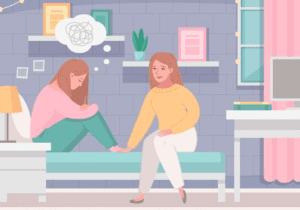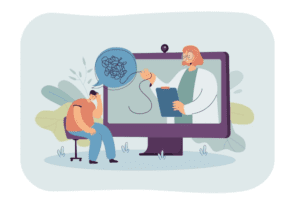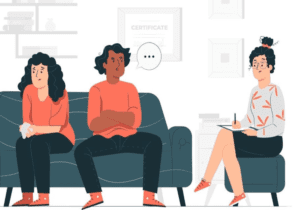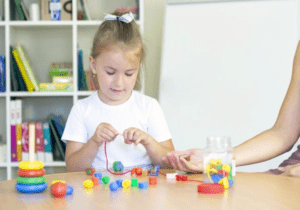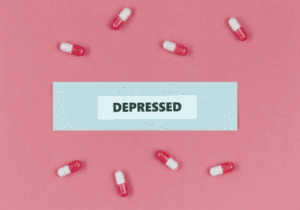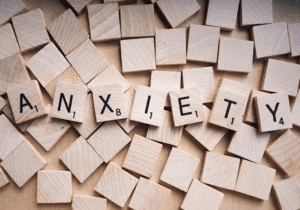The Hidden Language of Your Nervous System
This article has been researched and written by Moni El Ramlawy. AI has not been used in producing this article.
Before you say, “I’m fine,” your nervous system has already responded. That response doesn’t come from logic, reasoning, or even conscious thought – it comes from your body’s survival system. Polyvagal Theory, developed by Dr. Stephen Porges, offers a powerful lens to understand how our nervous systems respond to our emotional triggers. It tells us that we’re not just reacting to the world through our thoughts – we’re constantly scanning for cues of safety and danger. According to this theory, our nervous system navigates three main states to manage stress. When we understand them, we begin to decode the hidden language our body speaks every day.
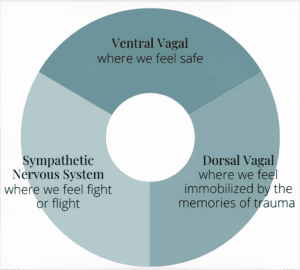
1. Safety & Connection (Ventral Vagal State)
This is your state of presence and regulation. When you’re in ventral vagal, your body feels safe and calm. This is your “I’m okay, I’m connected, I can think clearly” state. In this state, you can experience joy, healing, intimacy, and connection. You can express emotions, problem-solve, and reflect.
2. Alert (Sympathetic State)
This is a state of threat, and when your nervous system detects threat (real or perceived), it shifts into action. This is what we call the fight-or-flight response. You might feel agitated or anxious. Your heart races, muscles tense, and everything feels urgent. This is not a weakness; it’s your body trying to protect you, and while this state is essential for survival, being stuck there for too long can lead to burnout or chronic stress.
3. Shutdown (Dorsal Vagal State)
This state is like an emergency brake. When the threat feels overwhelming and escape seems impossible, the body goes into a state of freeze. You may feel spacey, numb, or exhausted. It can look like depression, but it’s actually a survival response when fight-or-flight no longer works.
Learning to notice these states helps you recognize your emotions. When you begin to understand how your nervous system works, you gain the power to regulate – through breath, movement, connection, and support – and you become more attuned to what you need: a pause, a boundary, a hug.
Gentle Parenting: What is it and How to Try it Yourself
When it comes to raising children, no one has all the answers. Every parent and child have unique challenges and needs. Navigating these individual circumstances along with ever-changing environments, such as school …
How to Improve Your Relationship with Your Children – A Psychologist’s Guide
The modern family’s lifestyle leaves us shuffling from school to sports practice, family events, visiting friends, and everything in between. As society evolves to become more on-the-go and technologically advanced, w…
Tips for Communicating With Someone Who is Depressed
Knowing what to say to someone who is struggling with depression can be challenging. Perhaps you are afraid you might say the wrong thing. Or maybe you will say something that makes their day even worse? Maybe you fee…
Who Can Benefit From Couple Counseling?
Relationships are far from perfect. Each person brings his or her own ideas, values, opinions, and personal history into a relationship, and they don’t always match their partner’s. Those differences don’t necessaril…
What is EMDR Therapy and How Does it Help People?
Since the days of Freud, we’ve come to expect that managing our trauma is a lifelong journey. However, this is not the case. Eye Movement Desensitization and Reprocessing therapy (EMDR therapy) was developed in 1990 …
Everything You Need to Know About Couples Therapy
It’s perfectly expected for couples in relationships to face challenges from time to time. Every relationship has its unique needs and challenges. Couples see therapy for a number of unique reasons. From miscommunicat…
Does Social Media Cause Depression?
According to recent estimates, roughly 4 billion people worldwide use various social media platforms, including Facebook, Twitter, Instagram, and LinkedIn. It’s not hard to believe. When you take a look around a crowd…
Child Development: Play Therapy in Dubai
Every child deserves to feel safe, empowered, understood, connected, and loved. Play therapy is based on the foundation of providing a safe environment for children to process their emotions and develop the social, em…
The Future of Depression Treatment
According to the World Health Organization (WHO), depression impacts more than 264 million people globally. Once diagnosed, depression treatment can be by medications, psychotherapy, or a combination of the two. While…
How to Talk to Your Therapist When You Have Social Anxiety
Social anxiety disorder (SAD), also called a social phobia, is characterized by intense fear or anxiety of being negatively evaluated, judged, or rejected in a social situation. Individuals with social anxiety often …



